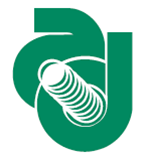Speaker
Description
A new generation of electron scattering experiments is underway at world-leading facilities such as BNL and JLAB, dedicated to the study of QCD. All these experiments are characterized by modern detectors, with millions of active readout channels, and by an unprecedented data rate, produced by high-luminosity operations of the accelerators. Therefore they require suitable DAQ system that can record the interesting events and filter out the unnecessary background. Thanks to the continuous progress in computing and networking technology, the FPGA-based trigger scheme can be replaced by streaming readout (SRO) DAQ system. It aims to use a software-based trigger that considers the whole detector information for efficient real-time data tagging and selection. Considering the crucial role of DAQ in an experiment, validation using on-field tests is crucial to demonstrate SRO performance.
In this contribution, I will describe the first Jefferson Lab implementation of a full SRO DAQ system, including several components such as: an FPGA stream source, a distributed hit processing system, and software plugins that allowed offline analysis written in C++ to be used for online event filtering. In particular, I will report results of on-beam tests performed to validate the JLAB - SRO framework

